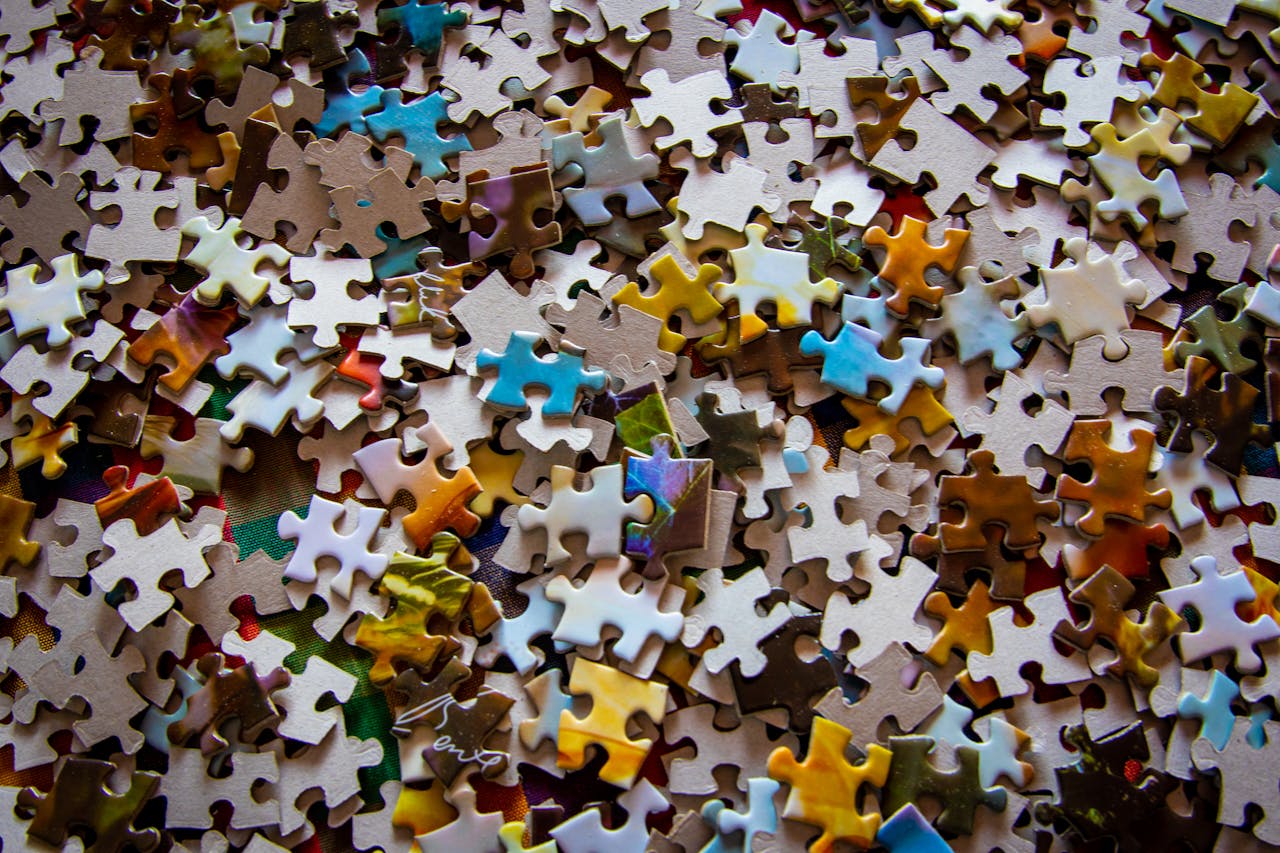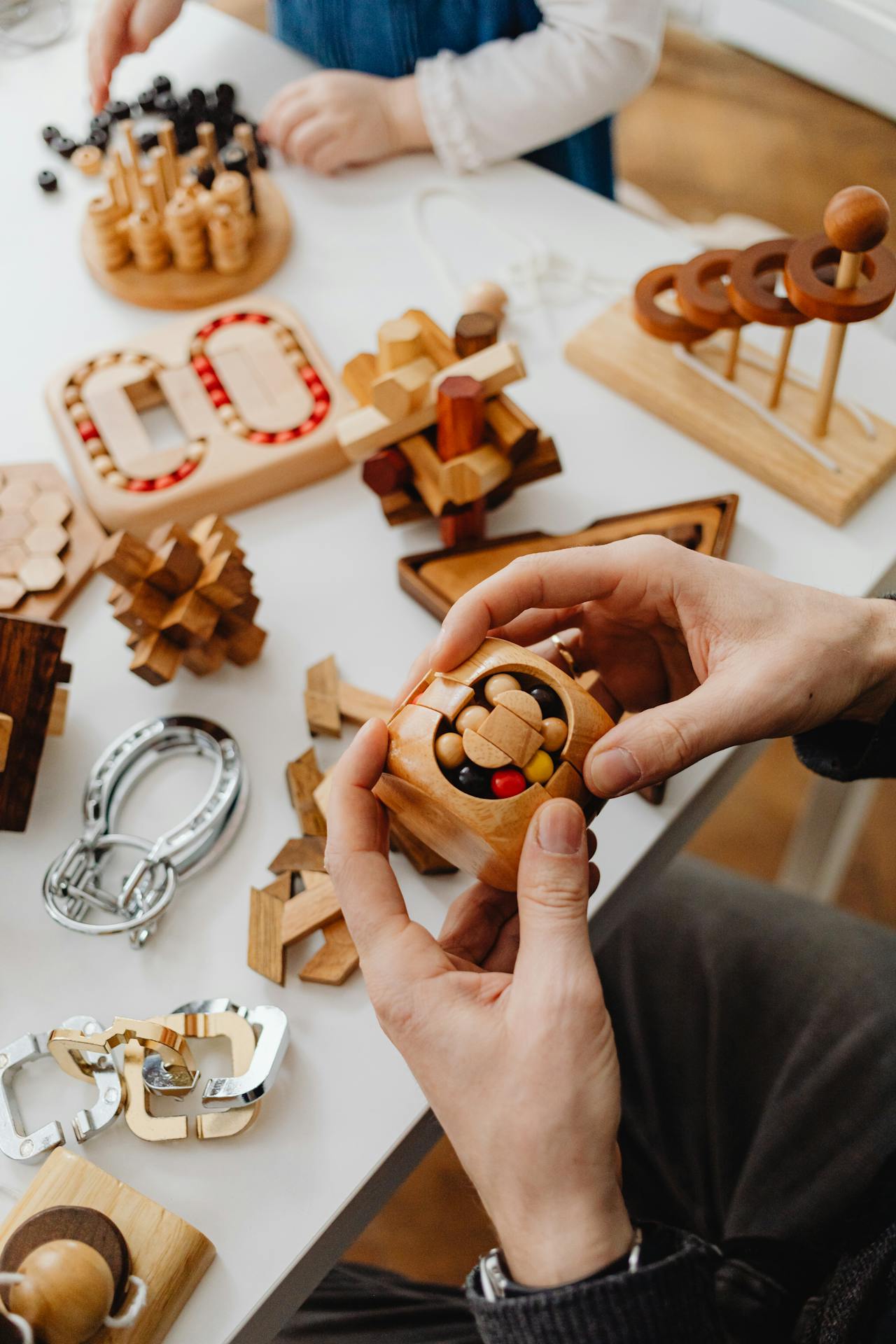Gifts for Puzzle Solvers: Brain-Teasing Birthday Fun That Challenges and Delights

Ever tried to buy a gift for a puzzle lover? You know the type: the person who sees a complex problem and their eyes light up. The one who can spend a happy afternoon sorting 500 nearly identical-looking blue pieces of a jigsaw puzzle, or who gets a genuine thrill from a tricky brain teaser.
Buying for these brilliant minds is a unique challenge. They don’t just want a simple toy; they crave a challenge, a mental workout, and the deep, soul-satisfying "aha!" moment when a solution finally clicks into place. A great puzzle gift isn't just an object—it's an experience.
So, how do you find that perfect, brain-teasing birthday gift that will truly delight them? Consider this your ultimate guide.
Understanding the Mind of a Puzzle Solver
Before we dive into the gifts, let's get inside their heads. Puzzle solving isn't just a hobby; it’s a form of mental fitness. When someone is deep in a puzzle, their brain is firing on all cylinders—engaging logic, pattern recognition, and spatial awareness. That feeling of satisfaction when they solve it? That's a literal rush of dopamine, the brain's reward chemical. It's what makes puzzling so wonderfully addictive.
Puzzle lovers are often patient, persistent, and analytical. They appreciate quality, clever design, and a challenge that respects their intelligence. The perfect gift for them acknowledges these traits and gives them exactly what they crave: a fun, engaging problem to solve.
The Ultimate Gift Guide: Puzzles for Every Personality
Not all puzzles are created equal. The perfect gift depends on what kind of challenge the solver enjoys most.
For the Visual Artist: Jigsaw Puzzles

The classic jigsaw is a work of art in itself. It’s a meditative, visual, and deeply satisfying experience. But today's jigsaws are so much more than just pretty landscapes.
- Premium Quality Puzzles: For a true connoisseur, the feel of the puzzle matters. Brands like Ravensburger, New York Puzzle Company, or Cobble Hill are loved for their thick, high-quality pieces that snap perfectly into place.
- Wooden Puzzles: These are the luxury sports cars of the puzzle world. Often laser-cut into whimsical shapes (called "whimsies"), they offer a completely different, more tactile experience.
- Stunning Art & Designs: Look for puzzles that feature beautiful artwork from contemporary illustrators or classic painters. A puzzle can be a way to interact with a piece of art on a whole new level.
For the Hands-On Tinkerer: Mechanical & 3D Puzzles
If they love to work with their hands, these puzzles offer a tangible challenge that they can twist, turn, and manipulate.
Here is a great mechanical 3D puzzle, use the wooden pieces and build a real world car (1:16 ratio). https://amzn.to/4m6Z1eh (Amazon Canada Affiliated)
- Elegant Wooden Brain Teasers: Think classic burr puzzles or intricate puzzle boxes. These are as beautiful to display on a coffee table as they are challenging to solve.
- Architectural 3D Puzzles: Let them build their favorite landmarks, from the Eiffel Tower to Hogwarts Castle. These result in impressive models that are incredibly satisfying to construct and display.
- Modern Twisty Puzzles: Go beyond the classic Rubik's Cube. The world of "twisty puzzles" is vast, with different shapes and complexities that will challenge even the most seasoned solver.
For the Logical Thinker: Brain Teasers & Logic Puzzles
These puzzles are for the person who loves pure logic, deduction, and finding order in chaos.
Here are Montague Island Mysteries. https://amzn.to/3HJPb4g (Amazon Canada Affiliated)
- Logic Grid Puzzles: These classic puzzles are a fantastic mental workout, requiring you to use a series of clues to fill out a grid and deduce the correct answer.
- High-Quality Sudoku Books: For the Sudoku lover, a book of handcrafted, high-quality puzzles is a real treat, offering a more satisfying challenge than computer-generated ones.
- Puzzle Collections: Look for books or box sets that offer a wide variety of brain teasers, from visual paradoxes to clever riddles.
For the Wordsmith: Word & Language Puzzles
For the person who loves language, a good word puzzle is a delightful challenge.
Here is Webster Puzzles 10 Booklet Set. They include crosswords, word search puzzles, anagrams, and more! https://amzn.to/3V4ufba (Amazon Canada Affiliated)
- Themed Crossword Collections: Find a collection of crossword puzzles themed around their favorite interest, whether it's classic movies, history, or science.
- Cryptic Crosswords: For the advanced wordsmith, cryptic crosswords offer a fiendishly clever challenge that plays with language in fascinating ways.
- High-End Word Games: A beautiful wooden edition of Scrabble or a new, innovative word-based board game can be a fantastic gift for social puzzlers.
Beyond the Box: Modern & Unique Puzzle Gifts
Want to think outside the traditional puzzle box? These modern options offer a fresh twist.
Here is the Dxles 1000 Piece Jigsaw Puzzle. https://amzn.to/42koBp8 (Amazon Canada Affiliated) I repeat, 1000 PIECES!
- A Puzzle Subscription Box: This is the gift that keeps on giving! Services deliver a new and interesting puzzle right to their door every month, perfect for someone who loves variety.
- A Custom Jigsaw Puzzle: Turn a cherished family photo or a favorite piece of artwork into a one-of-a-kind jigsaw puzzle. It's a deeply personal gift that combines a fun activity with a meaningful memory.
- Digital Puzzle Experiences: For the tech-savvy puzzler, a subscription to a high-quality puzzle app or a mind-bending puzzle video game can provide endless hours of entertainment.
The Perfect Companions: Must-Have Puzzle Accessories
A true hobbyist knows that the right accessories can make all the difference.
- Puzzle Sorting Trays: These simple trays are a game-changer for jigsaw puzzlers, allowing them to organize pieces by color or pattern.
- A Roll-Up Puzzle Mat: Perfect for those who don't have a dedicated puzzle table. A felt mat allows them to roll up a partially finished puzzle and store it safely without losing their progress.
- A Dedicated Puzzle Table or Board: For the serious enthusiast, an angled puzzle board or a table with built-in storage is the ultimate luxury, making long puzzle sessions more comfortable and ergonomic.
Choosing a gift for a puzzle lover is an opportunity to celebrate their brilliant, analytical mind. By picking a challenge that matches their style, you’re not just giving them a box—you're giving them hours of joy, a satisfying mental workout, and a deep sense of accomplishment. And that's a gift any puzzler will truly appreciate.